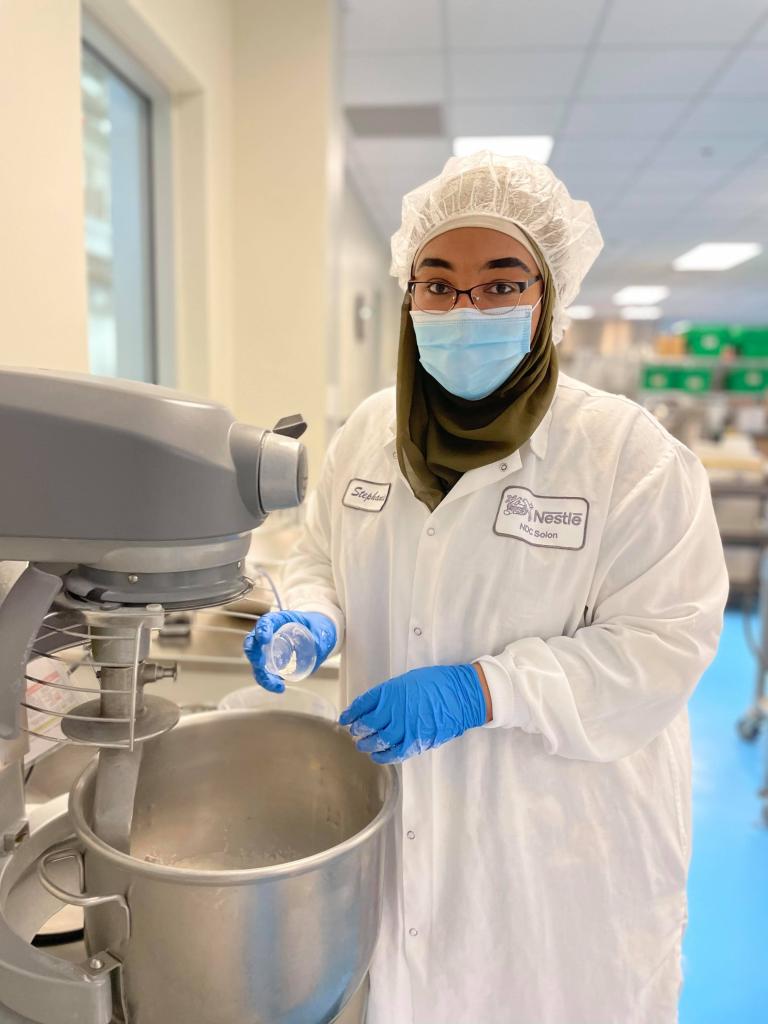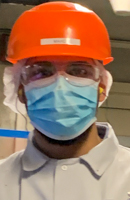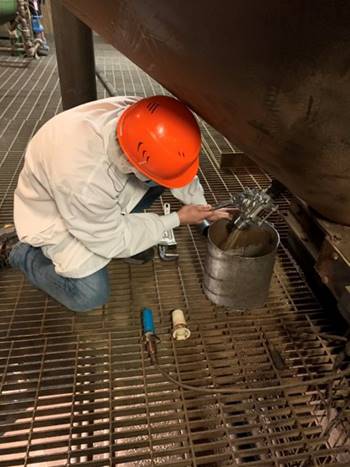
Ekram Suleiman ('21, ME)
“Kettering University has one of the most robust programs, which is why we said, ‘Let’s work with Kettering and bring in students for a first-round of Co-ops,’”
As the search for technical expertise in key areas of engineering continued to get harder, it was a no-brainer for Katie Schliep to begin researching Co-op programs to strengthen the talent pipeline for Nestlé USA.
Having gone through Kettering University’s Co-op model as a student, Schliep (‘10, IE) knew the value of a good program and the benefits it could provide to an organization like Nestlé. Schliep began working at Nestlé in January 2014 as an industrial engineer within the Operations Improvement Team, and she now serves as the Technical & Production Human Resources Manager.
About a year and a half ago, the company started to look into schools that offered Co-ops for engineering students. They weren’t looking for an internship because they wanted to build ongoing relationships with students linked to their curriculum to foster development, Schliep said.

Nestlé Technical & Production
Human Resources Manager
“Kettering University has one of the most robust programs, which is why we said, ‘Let’s work with Kettering and bring in students for a first-round of Co-ops,’” she said. “Our mission is to help build a pipeline for hard-to-fill technical roles through the Co-op program, enabling us to fill full-time roles within Nestlé USA upon Co-op graduation. We will do this by developing the Co-ops over the course of their schooling, linking Nestlé curriculum and experiences with classroom education.”
Despite the pandemic, the Kettering Co-op office worked with Nestlé to build and plan its program and facilitate the recruitment process, thus launching the Nestlé engineering Co-op program in January 2021 with six Kettering students participating in the program’s first term (Winter) and three in the Spring Term. Six are participating during the current Summer Term and three will be back in October. They work in one of Nestle’s many manufacturing facilities including in New Jersey, Ohio, Indiana and Michigan.
The program intends to rotate students through multiple locations over the course of their work terms to ensure they are able to see multiple manufacturing types and work with different engineering teams.
Additionally, four students from other universities also participate in the program. The plan is to have 12 students at any given time and it could increase depending on the company’s needs, as well as the success of the program, Schliep said.
Some of the roles for which Nestlé hopes to build a pipeline are in the fields of electricity and automation, as well as industrial services and process engineering.
Schliep said the company created a curriculum for the Co-op students to ensure they are developing the necessary skills to prepare them for graduation. Students also are paired with a subject-matter expert mentor to use as a resource in addition to their managers. At the end of the term, students give presentations for their managers and other upper-level executives about their experience and what they’ve learned.
Mahdi Chowdhury (’23, ME) and Ekram Suleiman (’21, ME) were among the first group of students to Co-op with Nestlé. Chowdhury worked as a process engineer at the Nescafé facility in New Jersey, and Suleiman was a process engineer at the research and development facility in Ohio.

Chowdhury’s previous experience was in the automotive industry, so working with food was a transition, but positive.
“I enjoyed it because my boss was really cool, and he explained what I had to do and learning possibilities, what I should be learning and how to move on,” he said. “… It’s a good learning experience, and it broadens my horizon.”
Suleiman also enjoyed the experience as it allowed her to marry her passion for food production with engineering.
“I really like it,” Suleiman said. “I love food, and coming from a school that is super automotive, this was a really great opportunity in working with food and engineering.”
Part of her experience focused on fixing the pizza press and dye to reduce waste because when it pressed the pizza dough, extra crust came out. She had to decide if it was a pressure issue or if a new dye was needed. She used this experience for her thesis.
Both Chowdhury and Suleiman said they were surprised to learn about Nestle’s products, which include frozen meals and pizzas, instant coffee, baby food and plant-based meals. They also both spoke highly of their co-workers and the culture at Nestlé.
“The culture of the company is definitely very collaborative,” Suleiman said. “I haven’t experienced that in a bigger company before, so that was one of my favorite things.”
Chowdhury said he would encourage other students to look into working at Nestlé.
“You really do start learning a lot,” he said. “I would put Nestlé as one of the top four Co-ops for Kettering.”
